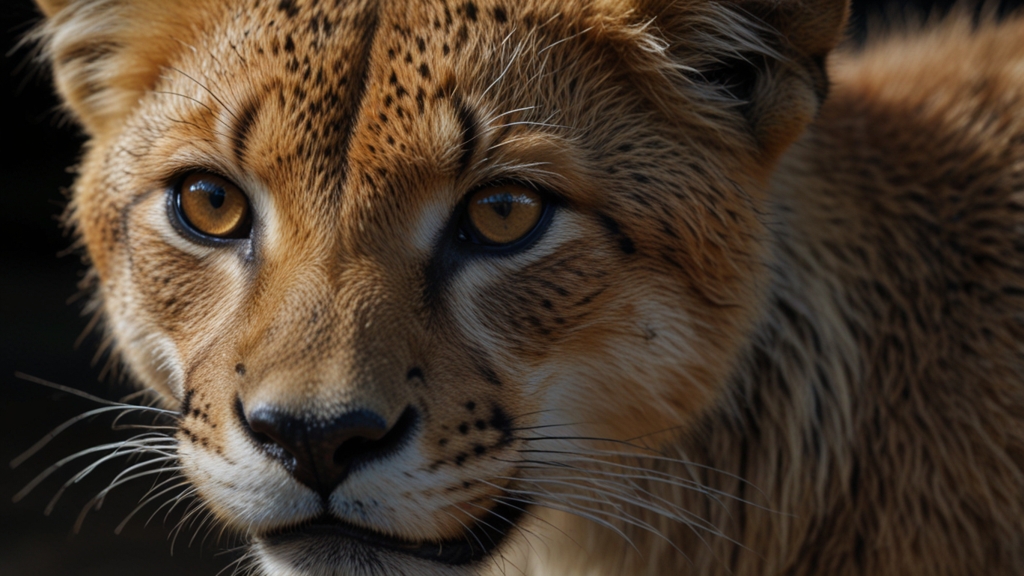Mammals Facing Extinction: A Call to Action for Our Furry Friends
Mammals, the class of animals to which humans belong, have long captivated our hearts and minds. From the majestic elephant to the elusive snow leopard, mammals play an essential role in the Earth's ecosystems. Unfortunately, numerous species are teetering on the brink of extinction, and the urgent call for action has never been louder. The International Union for Conservation of Nature (IUCN) lists over 1,000 mammalian species as endangered or critically endangered. These creatures need our immediate help to ensure their survival and to maintain the biodiversity that sustains all life on our planet.
The Causes of Decline
The reasons behind the dramatic decline in mammalian populations are multifaceted. Human activities have primarily driven habitat loss, climate change, overexploitation, pollution, and invasive species. Rapid urbanization, deforestation, and unsustainable agricultural practices lead to habitat loss and fragmentation, leaving many mammals without the space or resources they need to thrive.
Climate change further exacerbates this issue by altering habitats, which forces species to adapt rapidly or face extinction. For instance, polar bears depend on Arctic sea ice to hunt seals, but as the ice melts due to global warming, these magnificent predators find it increasingly difficult to find food and survive.
Overexploitation is another significant factor, with poaching, hunting, and fishing depleting populations at unsustainable rates. The illegal wildlife trade is worth billions of dollars and puts immense pressure on species such as the rhinoceros and pangolin. Pollution, including plastic waste, pesticides, and heavy metals, also poses significant threats to mammals by contaminating their habitats and food sources.
Invasive species can outcompete, predate, or introduce diseases to native mammal populations, further accelerating their decline. The introduction of species like the domestic cat to island ecosystems has had disastrous effects on indigenous mammals.
The Importance of Conservation
The protection of mammalian species is not only a moral imperative but also a crucial element of ecosystem health. Mammals play vital roles in their habitats as predators, prey, and ecosystem engineers. Their presence helps maintain the balance of ecosystems, ensuring the health of other species and the functioning of natural processes.
The extinction of a single mammal species can trigger a domino effect, leading to the loss of other species and the degradation of ecosystems.
For example, the decline of large herbivores like elephants and rhinos can lead to the overgrowth of vegetation, which in turn affects smaller species and the overall health of the ecosystem.
Steps We Can Take
The road to preventing mammalian extinctions involves concerted efforts on multiple fronts. Here are some actionable steps we can take to help save our furry friends:
1. Protect and Restore Habitats
Efforts must be made to protect existing habitats and restore degraded ones. Establishing and managing protected areas, promoting sustainable land-use practices, and reforesting areas can help provide safe havens for endangered mammals.
2. Combat Climate Change
Reducing greenhouse gas emissions is vital to slowing climate change and its impact on wildlife. Supporting renewable energy sources, reducing fossil fuel consumption, and advocating for policies aimed at mitigating climate change can make a significant difference.
3. Tackle Poaching and Illegal Trade
Strengthening regulations, increasing penalties for wildlife crimes, and enhancing on-the-ground enforcement can help curb poaching and illegal trade. Supporting organizations that work to combat wildlife trafficking is also crucial.
4. Reduce Pollution
Implementing measures to reduce pollution, such as proper waste management, banning harmful pesticides, and cleaning up polluted habitats, will help ensure cleaner environments for mammals to thrive.
Every individual effort counts: Reducing plastic usage, participating in local clean-up efforts, and spreading awareness about pollution's impact can all contribute to a healthier planet for mammals.
5. Control Invasive Species
Eradicating or controlling invasive species through targeted management and preventive measures can help protect native mammal populations. Public awareness and participation in invasive species management programs are critical components of these efforts.
6. Support Conservation Organizations
Nongovernmental organizations (NGOs) and community-based conservation groups play a crucial role in protecting endangered species and their habitats. Supporting these organizations through donations, volunteering, or advocacy can make a significant impact.
Conclusion
The plight of endangered mammals is a pressing issue that demands our immediate attention and action. By understanding the causes of decline, recognizing the importance of conservation, and taking concrete steps to protect these species, we can work together to ensure a future where our furry friends continue to thrive. It's a shared responsibility that transcends borders, requiring global cooperation and personal commitment.
Together, we can halt the march toward extinction and foster a world where humans and mammals coexist in harmony, ensuring the richness of Earth's biodiversity for generations to come.












